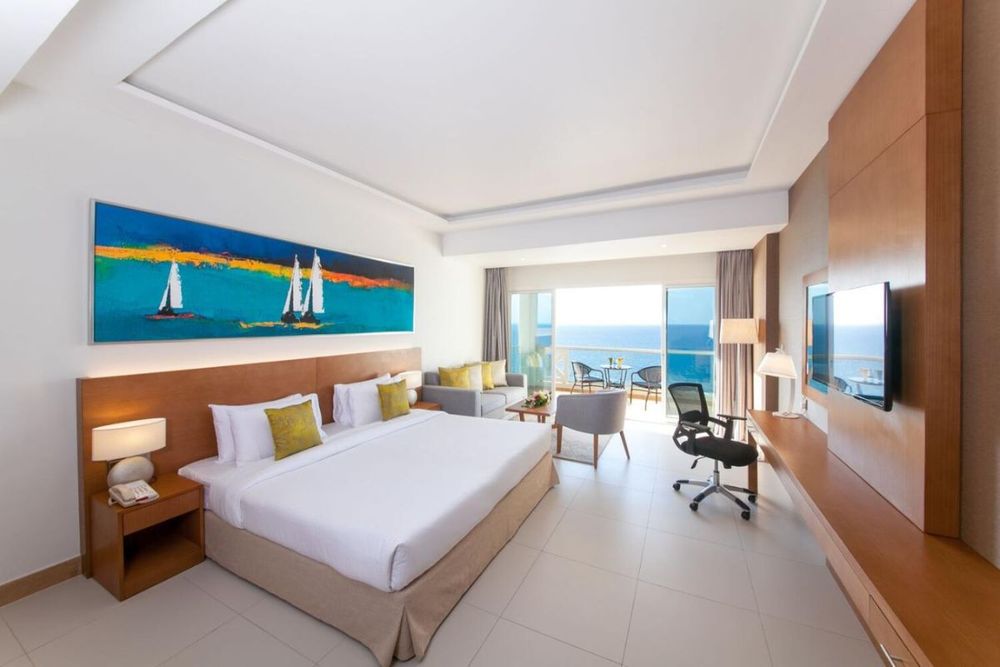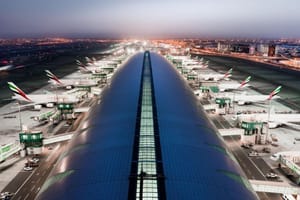$32 billion investment to lift the nation's room inventory to 200,000 with Dubai contributes 76% of new keys
The UAE's hospitality sector will continue to gain momentum and add another 48,000 keys by 2030 due to strong influx of tourists, latest data shows.
Global property consultancy Knight Frank said that in the UAE's hospitality sector the delivery of the planned hotel room supply is forecast to cost approximately $32 billion.
“The UAE’s world-leading hospitality market is set to expand by 25 per cent by 2030, with a further 48,000 rooms adding to the nation’s extensive 200,000 key portfolio,"
Faisal Durrani, partner and head of Middle East Research, Knight Frank, said.
Perhaps unsurprisingly, he said Dubai is set to account for the lion’s share of this total, with 76 per cent of all new rooms coming to the emirate, which already boasts over 130,000 rooms. This stockpile of hotel rooms is already higher than cities like London or New York.
“The emirate has cemented its status as a city with universal appeal, in large part to the world-leading government response to the pandemic and some of the world’s most visited and incredible attractions. The accolades for Dubai keep coming – Trip Advisor’s most popular destination for 2022, the world’s busiest international airport and the highest hotel occupancy in the world, all of which strongly pointing to room for further growth and expansion of this all-important pillar in the economy,”
Durrani said.
Focus on luxury segment
Turab Saleem, partner and head of Tourism and Hospitality, Knight Frank, said the UAE’s vibrant hospitality market continues to expand, with a clear focus on the luxury end of the price spectrum.
"Our analysis shows that 70 per cent of all the rooms planned will fall in the 4* and 5* category. This comes at a time when Saudi Arabia is pushing ahead with what is set to be one of the world’s most ambitious hospitality development programmes that will see more than 275,000 hotel rooms built across the kingdom over the course of the 2020’s at a total cost of $110 billion. The region’s transforming hospitality sector is set to create a very attractive proposition for global travellers,”
Saleem said.
International operators continue to flock to the Emirates
Knight Frank’s research has also revealed a growing proportion of international operators who are rushing to be part of one of the world’s most successful hospitality markets.
“The success of the UAE’s hospitality market means international operators are keen to continue cementing their presence. Indeed, the proportion of international operators to local ones is set to rise to 60 per cent from 56 per cent today,"
Durrani said.
“Interestingly, Hilton Hotels will add the most rooms overall, with close to 5,000 new keys expected by the end of the decade, a 43 per cent increase on today. This mirrors the group’s plans in Saudi, where Hilton hotels will emerge as the second biggest operator by 2030 with 19,000 rooms under management, around 3,000 rooms more than the group will have in the UAE by that stage,”
he said.
Knight Frank estimates that by 2030, the Accor Group will cement its place as UAE’s largest hotel room operator, with close to 25,000 rooms under management, a position the group also enjoys in Saudi Arabia.
“The UAE’s three biggest cities – Dubai, Abu Dhabi and Sharjah, continue to lead the region in terms of hotel performance, but Saudi Arabia’s existing cities are poised to experience a sea change in demand as Vision 2030 unfolds and business as well as leisure travel begins to overwhelm the existing supply, which will inevitably translate into heighted room rates and ADRs, at least while the existing number of keys remains inadequate for the demand yet to come,”
Saleem said.
News Source: Khaleej Times









